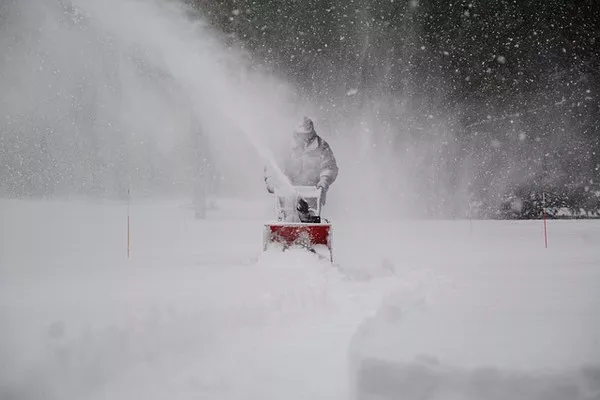As winter descends upon us, homeowners in snowy regions turn to snowblowers as essential tools for clearing driveways, sidewalks, and pathways. These machines come in various sizes and models, but a common question that often arises is, “What type of gas do snowblowers use?” In this comprehensive guide, we will explore the various fuel options available for snowblowers, their advantages and disadvantages, and provide recommendations for optimal performance.
Gasoline: The Standard Choice
The majority of snowblowers on the market run on gasoline, making it the standard and most widely used fuel type. Gasoline-powered snowblowers are known for their convenience, ease of use, and widespread availability of fuel. When selecting gasoline for your snowblower, it is crucial to choose a high-quality, unleaded gasoline with an octane rating of at least 87. Lower octane ratings may lead to engine knocking, reduced performance, and potential long-term damage.
One significant advantage of gasoline-powered snowblowers is their portability and freedom from electric cords. This allows users to navigate through various terrains without the limitations of a power outlet, making them suitable for large areas and challenging snow conditions.
However, it is essential to note that gasoline has a limited shelf life, and using stale or contaminated fuel can adversely affect the engine’s performance. To maintain optimal functionality, it is recommended to use fresh gasoline and add a fuel stabilizer to prevent the formation of deposits and varnish during storage.
Two-Stroke vs. Four-Stroke Engines
When considering gasoline-powered snowblowers, it’s crucial to understand the distinction between two-stroke and four-stroke engines.
Two-stroke engines require a mixture of gasoline and oil for lubrication, as there is no separate oil reservoir. While these engines are lighter and generally more straightforward, they tend to produce more emissions and may require more frequent refueling.
On the other hand, four-stroke engines have a separate oil reservoir, eliminating the need to mix fuel and oil. They are known for their fuel efficiency, reduced emissions, and quieter operation. However, they are often heavier and may require more maintenance.
Ultimately, the choice between a two-stroke and a four-stroke snowblower depends on individual preferences, the size of the area to be cleared, and the level of maintenance the user is willing to undertake.
Ethanol-Free Gasoline: A Better Option?
Ethanol is commonly added to gasoline as an oxygenate, which can help reduce air pollution. However, ethanol can absorb water from the atmosphere, leading to phase separation and potential engine damage. In regions where ethanol-blended gasoline is prevalent, users may want to consider using ethanol-free gasoline in their snowblowers.
Ethanol-free gasoline, often labeled as E0, is less prone to water absorption and offers improved stability during storage. This is particularly crucial for seasonal equipment like snowblowers that may remain unused for extended periods. While ethanol-free gasoline may be more expensive, the benefits of reduced engine maintenance and improved overall performance can outweigh the additional cost.
Alternative Fuel Options
While gasoline remains the primary fuel for snowblowers, there are alternative fuel options that environmentally conscious users may consider.
Propane-powered snowblowers have gained popularity for their lower emissions and reduced carbon footprint. Propane is a cleaner-burning fuel compared to gasoline, producing fewer greenhouse gases and air pollutants. Propane-powered snowblowers also require less maintenance, as propane does not leave behind the same residue as gasoline.
Electric snowblowers are another alternative for users seeking a more environmentally friendly option. These machines are typically corded or cordless, with cordless models powered by rechargeable batteries. While electric snowblowers are quieter, produce zero emissions, and require less maintenance, they may be less suitable for heavy snowfall or larger areas due to limitations in battery life and power.
See Also: What Oil Should Be Used In A Snowblower?A Comprehensive Guide
Conclusion
Choosing the right fuel for your snowblower is a critical decision that can impact performance, maintenance, and environmental considerations. Gasoline, particularly high-quality unleaded gasoline, remains the standard choice for its convenience, availability, and portability. However, users should be mindful of ethanol content and consider ethanol-free gasoline to enhance stability during storage.
Understanding the differences between two-stroke and four-stroke engines allows users to make informed decisions based on their preferences and intended use. Additionally, exploring alternative fuel options such as propane and electric snowblowers provides environmentally conscious consumers with choices that align with their sustainability goals.
In conclusion, selecting the appropriate fuel for your snowblower involves considering factors such as fuel quality, engine type, and environmental impact. By making an informed choice, you can ensure optimal performance, longevity, and efficiency from your snowblower while minimizing your ecological footprint.


